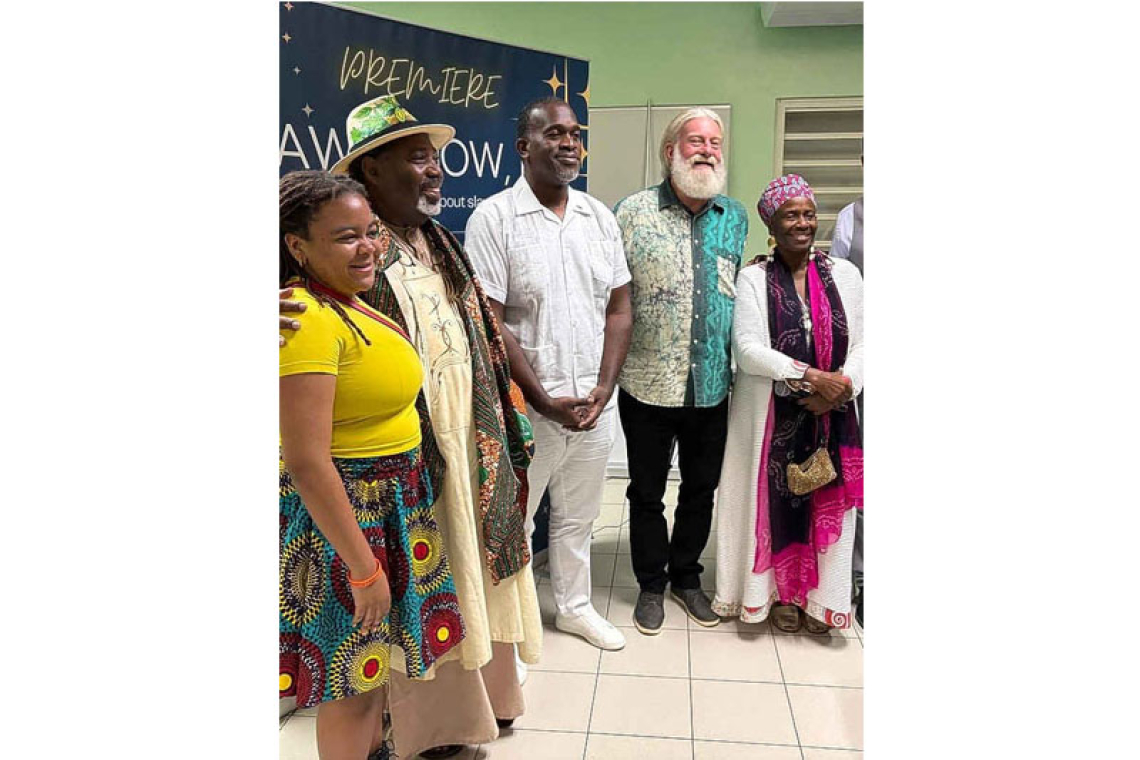From left: Youth participant Florianthe Boasman, educator and film-maker Roland “Roi” Colastica, Governor Ajamu Baly, Dr. Jay Haviser representing St. Maarten Archaeological Center, and Culture Department Head Clara Reyes.
~ Event highlighted legacy of enslavement and youth perspectives ~
PHILIPSBURG--In honour of Emancipation Day on July 1, the Department of Culture, in collaboration with University of St. Martin (USM), hosted a commemorative lecture and documentary screening focused on slavery, remembrance and cultural identity.
The event featured a thought-provoking lecture titled “Remember Africa’s Children: The Power of Three” by Dr. Jay Haviser of St. Maarten Archaeological Center SIMARC. Dr. Haviser shared findings from the 2010 discovery of three human skeletons unearthed in Philipsburg and later identified as first-generation Africans enslaved on the island between 1660 and 1680.
Known as the Zoutsteeg Three, the remains were located on Zoutsteeg and confirmed through genetic analysis conducted by the University of Copenhagen, along with strontium isotope testing, to trace their origins in West Africa.
The discovery earned international recognition, being named one of “Archaeology Magazine’s” Top Ten Discoveries of 2015. Dr. Haviser also discussed ongoing efforts for the potential repatriation of the remains to their ancestral homelands.
Following the lecture, educator and film-maker Roland “Roi” Colastica premiered the first episode of his new documentary series “AWO, NOW, NU”. The film presents candid interviews with youth from across the Dutch Caribbean, capturing their awareness and understanding of slavery, its legacy and racial identity today.
“What do you know about slavery, and when were you first taught about it in school?” is among the central questions posed to young people, offering insight into how this painful history is perceived by a new generation. The series aims to expand to other islands in the coming months.
Emancipation Day, observed annually on July 1, marks the abolition of slavery in the former Dutch colonies. It holds particular significance in St. Maarten, where it became the country’s first official public holiday following its new constitutional status on October 10, 2010.
Each year, the Department of Culture commemorates the day with events designed to foster reflection, remembrance and unity. Emancipation Day not only honours the resilience and humanity of enslaved Africans but also celebrates the legacy of freedom fighters who demanded justice and liberation throughout centuries of colonial oppression.







